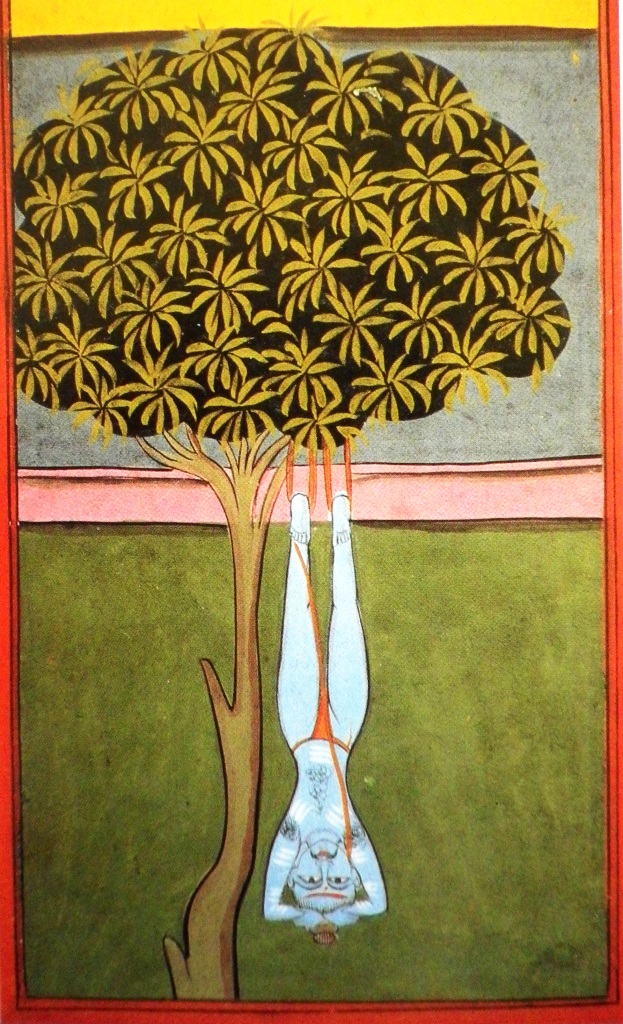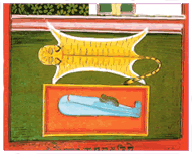THE ETHICS OF HATHA YOGA
 There are five main paths of yoga. They are interlinked yet separate. The first path is Raja Yoga, commonly known as meditation. Next comes Hatha Yoga which is the practice of asanas (postures) and pranayama (correct breathing). There is also Bhakti Yoga – the yoga of love and devotion, and Jnana yoga – the yoga of wisdom. The last path is Karma Yoga – the yoga of cause and effect. The ancient yoga texts set out certain rules or guidelines for one to follow. If one examines these rules carefully it can be seen that they are the basic ethics of humanity and are probably followed by every society in the world. These rules are broken down into restraints (called yamas) and observances (niyamanas). The restraints are non-violence, truthfulness, moderation in all things, non-possessiveness and non-stealing. The observances consist of cleanliness, contentment, austerity and keeping company with learnered and wise people. Hatha yoga is one of the oldest ways of releasing tension from the body and the mind via postures (asasnas) and breathing (pranayama). Most people suffer from neck or lower back tension. This is probably due to the fact that we were first designed to walk around on all fours, and as we developed we become creatures that rose upright onto two legs.
There are five main paths of yoga. They are interlinked yet separate. The first path is Raja Yoga, commonly known as meditation. Next comes Hatha Yoga which is the practice of asanas (postures) and pranayama (correct breathing). There is also Bhakti Yoga – the yoga of love and devotion, and Jnana yoga – the yoga of wisdom. The last path is Karma Yoga – the yoga of cause and effect. The ancient yoga texts set out certain rules or guidelines for one to follow. If one examines these rules carefully it can be seen that they are the basic ethics of humanity and are probably followed by every society in the world. These rules are broken down into restraints (called yamas) and observances (niyamanas). The restraints are non-violence, truthfulness, moderation in all things, non-possessiveness and non-stealing. The observances consist of cleanliness, contentment, austerity and keeping company with learnered and wise people. Hatha yoga is one of the oldest ways of releasing tension from the body and the mind via postures (asasnas) and breathing (pranayama). Most people suffer from neck or lower back tension. This is probably due to the fact that we were first designed to walk around on all fours, and as we developed we become creatures that rose upright onto two legs.
 The human head weighs an average of 6 to 7 kilograms and our thin necks sometimes take strain.Our modern lifestyle only adds to this stress – sitting at computers all day long, driving in the traffic and a myriad of other things that the human body was not designed to do. The practise of hatha yoga postures (asanas) can bring confidence, balance and harmony into your everyday life and it can affect your attitude and well being. The postures of hatha yoga will bring suppleness, flexibility, control and strength to your body as well as to your mind. Hatha yoga can improve one’s self-confidence and sharpen concentration.
The human head weighs an average of 6 to 7 kilograms and our thin necks sometimes take strain.Our modern lifestyle only adds to this stress – sitting at computers all day long, driving in the traffic and a myriad of other things that the human body was not designed to do. The practise of hatha yoga postures (asanas) can bring confidence, balance and harmony into your everyday life and it can affect your attitude and well being. The postures of hatha yoga will bring suppleness, flexibility, control and strength to your body as well as to your mind. Hatha yoga can improve one’s self-confidence and sharpen concentration.

 Return to menu
Return to menu